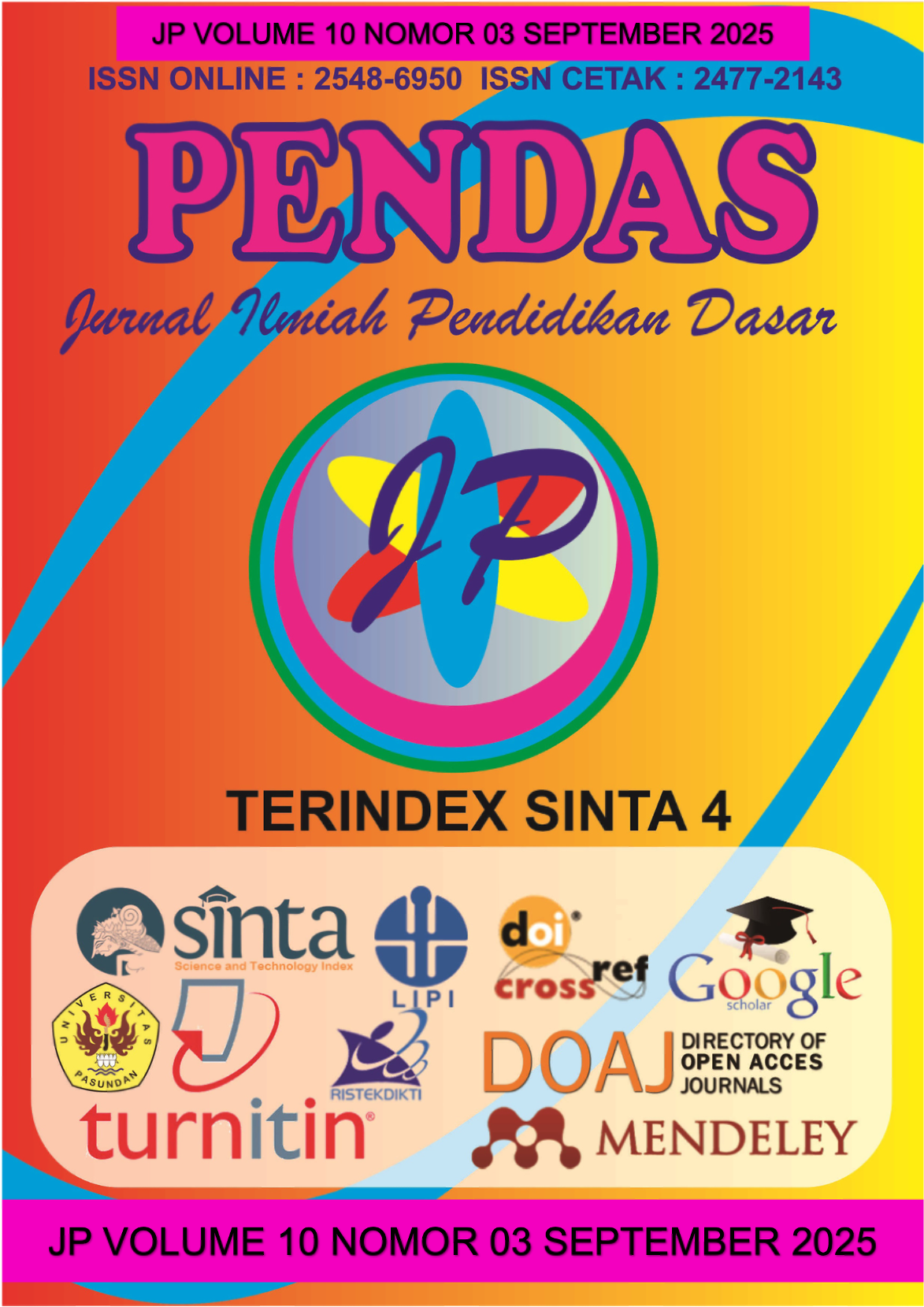STRATEGI PENGEMBANGAN KURIKULUM INTEGRASI NILAI ISLAM KE DALAM DESAIN KURIKULUM (Sampel SMPN 31 Padang)
DOI:
https://doi.org/10.23969/jp.v10i03.31119Keywords:
Strategy, Curriculum, Islam, DesignAbstract
This study aims to provide an example of a curriculum development strategy that integrates Islamic values into the design of formal education curricula at the educational unit level. The integration of Islamic values is believed to shape students' character holistically through the alignment of spiritual, cognitive, and affective aspects. This study used a qualitative approach with a case study method in an Islamic educational institution that has implemented an integrative curriculum. Data were collected through in-depth interviews, observations, and documentation studies. The results indicate that the integrative curriculum development strategy includes curriculum planning based on the values of monotheism, collaboration between subject teachers and religious teachers, and evaluation based on noble character. The conclusion of this study emphasizes the importance of synergy between Islamic values and academic competencies in developing relevant and transformative curriculum innovations with potential. Recommendations are provided for curriculum developers to be more responsive to the challenges of the times while adhering to Islamic values as the foundation of education.
Downloads
References
Aisyah, N., & Faelasup, F. (2024). Implementasi kurikulum merdeka dalam proses belajar mengajar di SMP Negeri 1 Kaliorang. AL-AMIYAH: Jurnal Ilmiah Multidisiplin, 1(02), 163–174.
Angga, A., Suryana, C., Nurwahidah, I., Hernawan, A. H., & Prihantini, P. (2022). Komparasi implementasi kurikulum 2013 dan kurikulum merdeka di sekolah dasar Kabupaten Garut. Jurnal basicedu, 6(4), 5877–5889.
Atho’illah, M., & Minarti, S. (2025). Evaluasi Pendidikan Berbasis Nilai Islam: Kajian Konseptual Berdasarkan Pemikiran Syed Muhammad Naquib al-Attas. Philosophiamundi, 3(3). https://philosophiamundi.id/index.php/philosophia/article/view/132
Azizah, D. A., Rosmelia, F., Tazkiyah, N. T., & Iskandar, S. (2025). Peran Komponen Kurikulum Sebagai Instrumen Transformasi Pendidikan Abad 21. Jurnal Penelitian Ilmu Pendidikan Indonesia, 4(2), 499–509.
Herawati, A., Sinta, P. D., Marati, S. N., & Sari, H. P. (2025). Peran pendidikan Islam dalam membangun karakter generasi muda di tengah arus globalisasi. IHSAN: Jurnal Pendidikan Islam, 3(2), 370–380.
Puspita, D. G., & Andriani, D. E. (2021). Upaya Peningkatan Mutu Pendidikan Di Sekolah Menengah Pertama dan Permasalahannya. Jurnal Pendidikan Dan Kebudayaan, 6(1), 21–37.
Riyazati, S., Awaluddin, R., Salamah, H., & Asrohah, H. (2022). INOVASI KURIKULUM MERDEKA SEBAGAI PEMULIHAN PEMBELAJARAN PASCA PANDEMI. Raudhah Proud To Be Professionals: Jurnal Tarbiyah Islamiyah, 7(1), 280–293.
Setiawan, S. A. (2024). Tantangan guru pai mengimplementasikan kurikulum merdeka dalam pembelajaran pendidikan agama islam. Jurnal Inovasi Pendidikan Madrasah Ibtidaiyah (JIPMI), 3(1), 49–64.
Susilawati, S., Octasari, A., & Juanda, J. (2023). Analisis struktur kurikulum K13 dan struktur kurikulum merdeka fase E untuk kelas X dan fase F untuk kelas XII. Jurnal Literasi Dan Pembelajaran Indonesia, 3(1), 24–32.
Downloads
Published
Issue
Section
License
Copyright (c) 2025 Pendas : Jurnal Ilmiah Pendidikan Dasar

This work is licensed under a Creative Commons Attribution 4.0 International License.














































